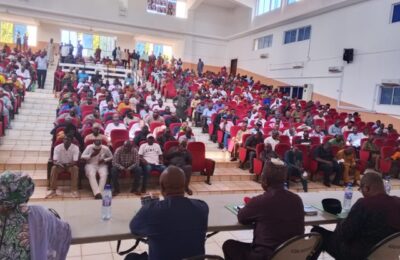The Federal Government is partnering the Kogi State Government on the treatment of some tropical diseases among school children in the state, an official has said.
The state Commissioner for Health, Dr Idris Omede, at a stakeholders meeting in Lokoja on Wednesday said that the partnership was targeted at the treatment of such neglected tropical diseases, as Schistosomiasis and soil transmitted Helminthes.
Omede noted that the said diseases constituted hindrance to educational performance among the children.
He said that the Federal Ministry of Health and Sightsavers, in collaboration with the State Government in a recent survey revealed that some local government councils in the state were at risk of ravages of such diseases.
According to him, Lokoja, Kogi, Bassa and Okehi local governments were identified in the survey as endemic areas that needed urgent attention.
“Schistosomiasis or Bilharzia is a parasitic disease caused by trematode, flatworms, which when released by freshwater snails into pools penetrate the skin of people in the water.
“In urinary schistosomiasis, there is progressive damage to the bladder, ureter and kidney.
“In intestinal schistosomiasis, there is progressive enlargement of the liver and spleen, intestinal damage and hypertension of the abdominal blood vessels,’’ he said.
The control of the disease, he said, was drug treatment, snail control, improved sanitation and health education.
Soil transmitted Helminths, according to him, were the most common mode of infection of tropical diseases worldwide and tended to affect the poorest and most deprived communities.
“Species that infect school children include the round worms, the whipworm and hookworms,’’ he said.
Presenting a paper on the topic “The Role of Stakeholders in School Based Treatment of Schistosomiasis’’, Mr Christian Nwosu, a resource person, said Lokoja and Kogi Local governments were at moderate risk of Schistosomiasis up to 25 and 12 per cent, respectively.
According to him, Bassa and Okehi local governments stood at 41 and 40 per cent risk of soil transmitted helminthes.
He said that the high prevalence required urgent response, adding that the Federal Ministry of Health had given the required drugs.



